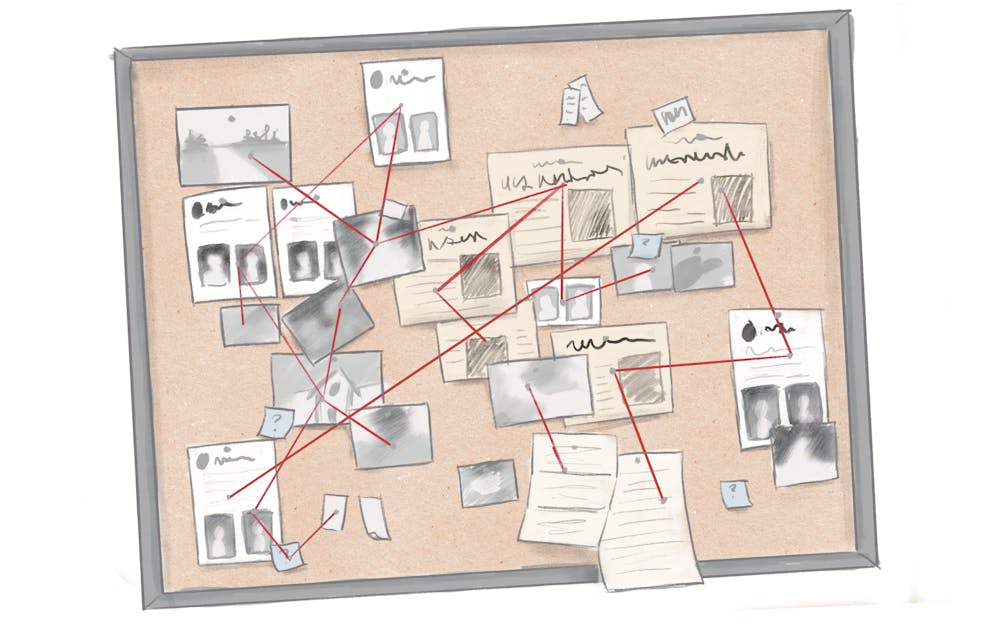SPOILER ALERT: This column contains potential spoilers about the 2017 podcast "S-Town."
Just about 10 years ago, a man named John contacted “This American Life.” A fan of the radio program, John felt this team of journalists was well-suited to help him solve an alleged murder in his hometown of Woodstock, Alabama — or, as he preferred, “Shit-town.” John was a horologist: that is, somebody who studies the instruments of time –– think clocks or watches or sundials or hourglasses. He was just short of a doomsday prepper, a queer liberal pseudo-activist in a part of the country where being a queer liberal pseudo-activist could get you marked with a giant scarlet letter. He was also a genius, a jack-of-all-trades who conducted chemistry and physics experiments, built mazes for fun and was as well-read as they come.
And, as you may be able to tell from my use of the past tense, John is dead. That’s about the only present-tense sentence you can use to describe him now. He took — back to the past tense — his own life shortly after the journalists he summoned discovered the murder he alleged never actually happened.
The story of John B. McLemore is the basis of the 2017 podcast “S-Town.” It wouldn’t be right to call this podcast “true crime.” It starts off that way, with a southern gothic tale of a small-town murder and the subsequent cover-up by local officials; the resident mad genius, tortured by a lack of understanding among his peers, determined to oust the cancer in his little community, knowing nowhere else to turn but toward National Public Radio. But, then the mad genius is gone. And suddenly the podcast is about him. There is no longer a suspicious death or a cover-up. John died, and everyone knows exactly how.
“S-Town” is a beautiful summation of the life of an interesting nobody. It makes fascinating the ins-and-outs of a person most of the audience never would’ve known personally, never would’ve come close to knowing personally. It’s at once a haunting obituary and a breathtaking elegy. It’s also a podcast that, like so many others of its kind, comes with moral baggage.
At what point does a eulogy for the recently deceased become a gossip rag? On a similar note, at what point does the broader genre of true crime become exploitative? And where do we, the audience eating this content up, fit into the larger ethical considerations inherently present in it?
[Related: OPINION: Satire? More like sa-tired]
According to Pew Research Center, true crime is the most popular genre among those who listen to podcasts. The media world has noticed and taken it ever further, and even more ethical questions are raised as the genre has stamped its footprint in the fictional realm. Massively popular series like “Unbelievable,” “Dahmer — Monster: The Jeffrey Dahmer Story” and “Mindhunter” on Netflix have raked in millions of viewers, all in the name of dramatizing real-life crimes and real-life victims.
It’s the tragedy of the once unknown acted out on the stage for everyone to see. It’s sadistic voyeurism disguised as entertainment. And we’re all hooked — even I begrudgingly call it a guilty pleasure.
It’s a difficult sort of logic to personally reconcile. I hate the idea I’m being entertained by nonfiction devastation. Even the content more journalistic in nature, like “S-Town,” is hard to defend: as graceful as it approaches its subject matter, I still feel as though it’s a story nobody has the right to tell me. Everyone has a history worth recounting, but John isn’t around to consent to everyone knowing his.
But, like I already stated, it’s not entirely fair to lump “S-Town” in with those true crime programs I’ve mentioned. But the same principles apply: it is, at its core, a form of infotainment. Defenders of shows like “Dahmer” or “Extremely Wicked, Shockingly Evil and Vile,” the Netflix original starring Zac Efron as Ted Bundy, will say there’s value in understanding the psychological motivations and humanity of serial murderers, and perhaps this is true. But if this were truly the intent behind these programs, they’d be documentaries.
It’s imperative we admit the majority of the true crime genre is made for the purpose of entertainment; one doesn’t make a television series or a podcast without considering how to entice viewers and listeners to tune into the next episode.
Unfortunately, the market doesn’t care whether or not a form of entertainment falls under a rigid code of ethics. The market sees the popularity of the entertainment and knows it ought to produce it. With this logic, we’re all indicted under recurrent charges — we consume content we know we shouldn’t, the market sees this objectively, it makes more, we consider the ethical inquiries, we watch more.
Perhaps it’s pure morbid curiosity. Perhaps it’s the need to understand why another human being would commit such heinous acts. Perhaps, in the case of “S-Town,” it’s a way to celebrate life, and humanity as a whole, through the lens of a single person. Whatever it is, there are real, valid reasons why we enjoy these stories; there are no real, valid reasons why they continue to be made. It’s this contradiction that makes the whole debate that much more difficult. We’re both victims and perpetrators of this form of entertainment — like the instruments of time, the kind horologists like John study, it’s a continuous cycle.
[Related: OPINION: In defense of the evil girl boss]
The clock was at one, now it’s at one again; the bottom of the hourglass is full, tip it over and watch it start once more; the pendulum swings back and forth, neverending; the train crashes, and despite the calamity, we can’t look away.
Joey Sills (he/him) is a junior studying English and political science.






